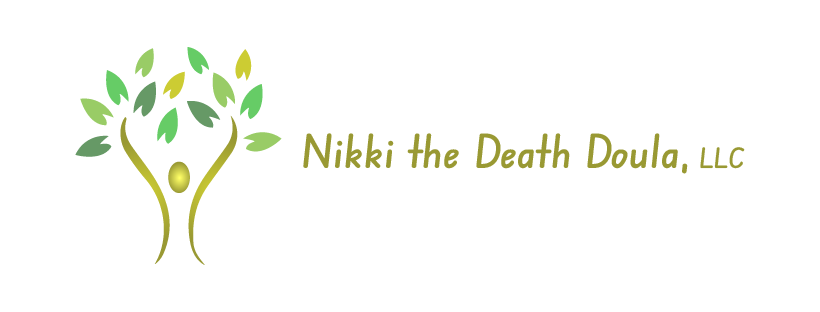Understanding the Impact of Sudden Death vs. Anticipated Death
No two losses are the same. We don't react to any loss the same as we did the last one. The way grief lands with us often depends on how that death showed up. When someone dies suddenly, it’s a bit like a punch in the face. When death is anticipated, it’s more like a slow dimming of the light. Both leave us in the fumbling dark, just in different ways.
When Death Comes Suddenly
I once heard someone describe sudden death as “being shoved into a room you didn’t know existed, with no lights on and no way back out.” That’s pretty accurate honestly. Shocking and confusing.
If your loved one was here one moment and gone the next, your mind might keep circling the same questions: How can this be real? Did I miss something? Why didn’t I…? What if…? The unfinished conversations and abrupt ending can feel unbearable. (Remember my post on closure?)
Some people feel anger. Anger at the circumstances, at the randomness of it all, sometimes even at the person who died (“How dare you leave without warning?”). Others feel completely numb, as if the world has gone quiet and blurry. There’s no time to brace yourself, no gradual letting go. It’s just gone.
When Death Is Expected
Anticipated death is different. It’s more like walking a long road where you can see the horizon. Families navigating terminal illness or the decline of aging often live in two worlds at once: caring for someone who is still here, while quietly grieving the losses already happening along the way.
Maybe you’ve felt it; mourning the fading memory of a parent, the shrinking independence of a spouse, or the changing roles within your family. This is anticipatory grief, and it can be draining because it stretches on and on. You carry sadness alongside caretaking, all while waiting for a moment you don’t want to come.
When death finally arrives, people are often surprised by their own reactions. Relief and sorrow can show up at the same time. Relief that the suffering is over. Sorrow that the goodbye is final. And sometimes guilt sneaks in too: Why am I relieved when I should only feel sad? But here’s the truth: relief does not not mean relief that they are gone. It simply acknowledges the cost of watching someone you care about slowly fade away.
The Differences and Overlap
It’s tempting to wonder which is “easier”: sudden death or anticipated death. And people ask me this all the time!! The truth is, neither one is easier or harder. Sudden death leaves you stunned, scrambling to catch up, weighed down with “what ifs.” While anticipated death stretches your heart thin over time, layering exhaustion and pre-grief long before the end.
Both can feel isolating, especially when the world expects you to “move on” at a pace that doesn’t match your reality.
What Helps
Grief always needs companionship, but the kind of support can be different.
In sudden death, what helps most is presence. Sitting with someone in silence, helping with everyday tasks, and resisting the urge to explain or fix. (YOU CAN’T FIX THIS, DON'T TRY) The shock alone is heavy; your steadiness is the gift. BE with them and let them feel seen and heard.
In anticipated death, what helps most is validation. Caregivers may need to hear that their exhaustion, their mix of emotions, even their sense of relief; all of it is normal. Offering breaks, listening without judgment, and staying present after the death matters deeply. Keep showing up
The Common Thread
Whether death arrives suddenly or after a long ending, grief doesn’t follow a schedule. There isn’t a day when your soul suddenly says, “I’m good, all better!” Instead, we carry our love forward in new ways.
If you’re grieving, and your experience doesn’t look like someone else’s, that doesn’t mean you’re doing it wrong. It means your story with the person you loved was one-of-a-kind, and so is your grief.
Closing Thought
We don’t get to choose how death comes. But we do get to choose how we show up for one another in its wake. Sometimes that means steadying a friend who has just had their world torn in two. Sometimes it means holding space for a caregiver who is both relieved and devastated at once. In every case, compassion is the bridge between us.
Whether death is sudden or expected, the truth is the same: grief is love, learning to live in a world that looks completely different without the person you lost.
